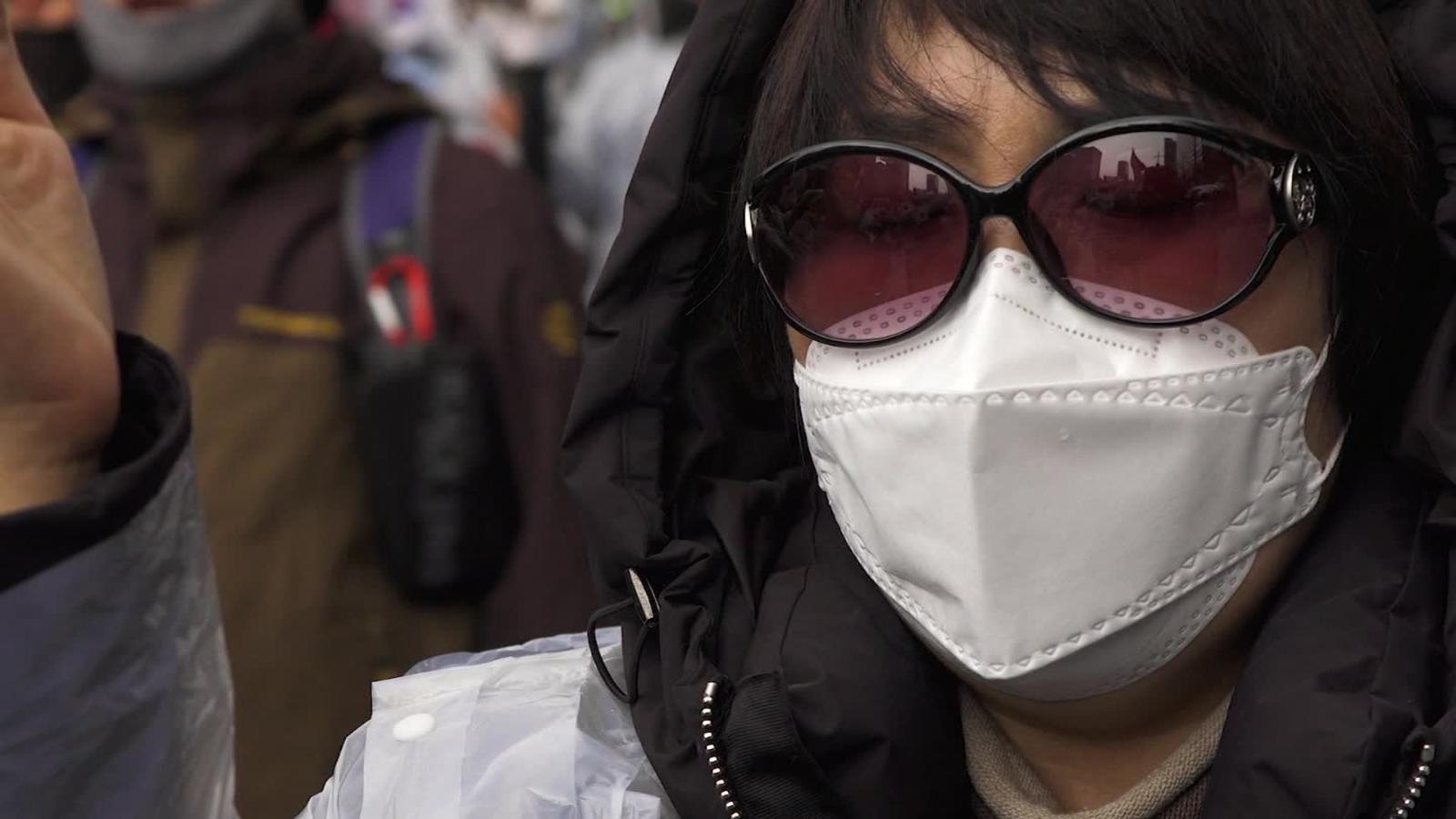The patient didn't have any relevant travel history or exposure to another known patient, said Dr. Sara Cody, director of the county's public health department.
The patient is a resident of the county, officials said.
"This new case indicates that there is evidence of community transmission, but the extent is still not clear," Cody said. "I understand this may be concerning to hear, but this is what we have been preparing for. Now we need to start taking additional actions to slow down the spread of the disease."
The woman had been hospitalized for a respiratory illness and her infectious disease doctor on Wednesday requested a coronavirus test. The case is not related to two others in the county, officials said.
"The virus is here present at some level, but we still don't know to what degree," Cody told reporters.
Another case in Oregon reported Friday is thought to be from community transmission but health officials there said the Centers for Disease Control and Prevention needs to confirm the state's positive test result.
The person is from Washington County and is being treated at a Kaiser Permanente hospital.
The Oregon patient is thought to be the third case of community spread in the United States.
One California patient in serious condition
The CDC this week updated its testing criteria after a Solano County, California, woman wasn't tested for days after being hospitalized. The patient is in serious condition and has been intubated, according to California Rep. John Garamendi.
The Solano County case has puzzled health officials, who say they have not been able to trace where she contracted the virus.
"This does appear to be a person who genuinely did acquire their illness in the community," Solano County Public Health Officer Dr. Bela Matyas said in a news conference Thursday.
Solano County and Santa Clara County are about 90 miles apart. The new patient has not traveled to Solano County, officials said.
The Solano County patient, who is being treated at UC Davis Medical Center, could be the first instance of "community spread" of the virus, the CDC said Wednesday.
The patient was transferred to UC Davis from a Northern California hospital last Wednesday but wasn't tested until Sunday, after doctors at UC Davis persisted in the request. Both hospitals said there was no initial testing administered because the patient didn't fit existing CDC criteria for coronavirus.
That guidance has now changed, CDC Director Dr. Robert Redfield said.
"As soon as that case was recognized, we met and we revised our case definition for persons under investigation," Redfield said. "Today, that has been posted (to the CDC website) along with a new health advisory that the recommendation should be when a clinician or individual suspects coronavirus, then we should be able to get a test for coronavirus."
There are 65 confirmed cases of coronavirus in the US, according to health officials, but no deaths.
Testing turbulence
The CDC hopes to have every state and local health department testing for the coronavirus by the end of next week.
Dr. Nancy Messonnier, director of the CDC's National Center for Immunization and Respiratory Diseases, announced the new goal in a press briefing Friday while noting the coronavirus virus testing hiccups that have occurred so far.
"This has not gone as smoothly as we would have liked," she said.
Some testing kits initially sent to state and local labs were flawed, which delayed their ability to test for cases of the virus. Only a handful of labs other than the CDC could perform the test.
Officials have established the third of three testing components in the kits was responsible for providing "inconclusive results," and can be excluded from tests without impacting their accuracy, Messonnier said.
States that were previously able to validate cases using their original coronavirus testing kits can continue to use them, Messonnier said. States that were able to validate using two of the three testing components can use those tests as well, with revised instructions. The CDC has new test kits that can be ordered, which include the first two components.
"This will increase testing capacity at state and local health departments," Messonnier said.
With loosening guidelines, California said it was working with the CDC to quickly expand its testing capabilities.
"We have just a few hundred testing kits in the state of California, and that's surveillance testing as well as diagnostic testing," California Gov. Gavin Newsom said Thursday. "That's simply inadequate to do justice for the kind of testing that is required to address the issue head on."
More than 20 vaccines in development worldwide, WHO says
World Health Organization Director-General Tedros Adhanom Ghebreyesus said Friday the organization had "increased our assessment of the risk of spread and the risk of impact of COVID-19 to very high at a global level," referring to the WHO's formal name for the virus.
"The continued increase in the number of cases," he said, "and the number of affected countries over the last few days, are clearly of concern."
The risk assessment makes no "legal difference" in how countries should prepare for the outbreak, Dr. Mike Ryan, executive director of the WHO's Health Emergencies Programme, said Friday.
Rather, "raising the risk to very high is essentially reflecting what's actually happening at a global level," Ryan said, adding that it's a "reality check" for governments to prepare.
Most coronavirus cases can still be traced to known contacts or clusters of cases, Ghebreyesus said in a news conference in Geneva, and WHO does not yet see evidence that the virus is spreading freely.
"As long as that's the case," he said, "we have a chance of containing this virus."
There are more than 20 vaccines in development around the world, Ghebreyesus said, and several therapeutics are in clinical trials.
In the meantime, Ghebreyesus said people should be sure to wash their hands and regularly clean surfaces with disinfectant.
How the US is responding
By this weekend, 93 labs across the US are expected to have testing capabilities, said US Health and Human Services Secretary Alex Azar. And as many as 70 companies are vying to develop a "bedside diagnostic" test for hospital use.
The US Food and Drug Administration also authorized the two-step test that will allow labs other than the CDC to test for the virus. A third step, which was causing inconclusive results, was eliminated, Azar said.
"Forty labs are qualified to already be doing that," he said.
And in Nebraska, a team of researchers are working to evaluate how effective the antiviral drug remdesivir would be in treating people diagnosed with the virus, the National Institutes of Health said.
The clinical trial, taking place at the University of Nebraska Medical Center, in Omaha, will test the drug first on an American who was evacuated from the Diamond Princess cruise ship.
So far, there have been more than 84,400 confirmed cases of coronavirus across the world and at least 2,919 deaths -- the vast majority in China.
"Here" - Google News
February 29, 2020 at 10:00AM
https://ift.tt/2uI9Dgk
New coronavirus cases in California and Oregon are second and third of unknown origin in US - CNN
"Here" - Google News
https://ift.tt/39D7kKR
Shoes Man Tutorial
Pos News Update
Meme Update
Korean Entertainment News
Japan News Update








:no_upscale()/cdn.vox-cdn.com/uploads/chorus_asset/file/25244079/4.png)
No comments:
Post a Comment